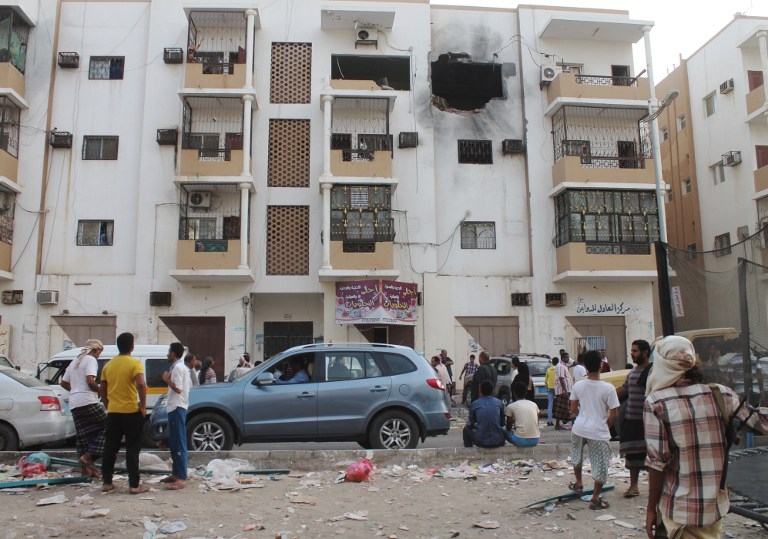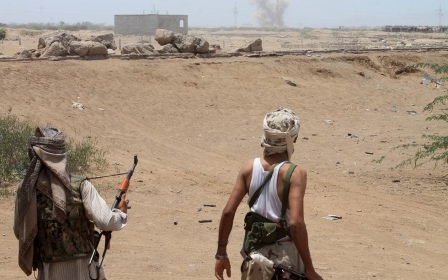Houthis mull withdrawal from Aden as secret talks continue: Reports

Houthi rebels are conducting closed-door talks with leaders of Yemen’s southern independence movement, in which the rebels have reportedly set out their conditions for a withdrawal from the key southern city of Aden.
Ali Nasser Mohammed, former president of South Yemen prior to its unification with northern Yemen in 1990, told al-Sharq al-Awsat on Tuesday that he and other southern leaders are working with “all sides” of the conflict.
One of the key aims of the debate, Mohammed said, is to persuade both the Houthis and the forces allied to exiled president Abd Rabbuh Mansour Hadi to withdraw from Aden, the largest city in southern Yemen and formerly the capital of independent South Yemen.
If a Houthi withdrawal from Aden were to be negotiated, Mohammed said control of the city would be handed to the Hirak, the southern resistance movement that is fighting for independence for the region.
Despite the failure of UN-sponsored peace talks in Geneva last week, sources have told multiple Arabic-language news sites that indirect negotiations between the parties are ongoing. The talks are being mediated by Oman, the only Gulf country not participating in the Saudi-led bombing campaign in Yemen.
Diplomatic sources told al-Araby al-Jadeed that six Houthi delegates had flown straight from Geneva to the Omani capital Muscat on Sunday, and had joined up there with Houthi spokesperson Mohammed Abdel Salaam and high-level official Saleh al-Sumad.
Discussions there are focused on securing a Houthi withdrawal from Aden, home to a strategic port which has been effectively under blockade since the start of the Saudi-led bombing campaign in late March.
Civilians in the town say Houthi militias have placed snipers on the town’s rooftops, and have been randomly shelling residential areas.
In a message addressed to UN Secretary General Ban Ki-moon on Tuesday, and published by Houthi official Ali al-Ammad the following day, the rebels expressed their willingness to participate in a “withdrawal of all parties from major cities”.
According to the statement, the withdrawal would still allow parties to fight against al-Qaeda and “prevent them from gaining control and spreading”.
Many observers fear that the ongoing chaos in Yemen is aiding the growth of al-Qaeda in the Arabian Peninsula (AQAP) one of the group’s most feared franchises.
Militants claiming to be linked to Islamic State have also launched three deadly mosque bombings since March, which altogether have killed some 200 people.
Amid reports of ongoing negotiations, violence continued on the ground in Yemen as well as on the border with Saudi Arabia.
Three Saudi soldiers have killed on the border with Yemen, along with one Emirati national, so far this week.
Official Saudi statements have given little information about the incidents, although rocket fire from inside Yemen is thought to have caused at least two of the deaths.
New MEE newsletter: Jerusalem Dispatch
Sign up to get the latest insights and analysis on Israel-Palestine, alongside Turkey Unpacked and other MEE newsletters
Middle East Eye delivers independent and unrivalled coverage and analysis of the Middle East, North Africa and beyond. To learn more about republishing this content and the associated fees, please fill out this form. More about MEE can be found here.




